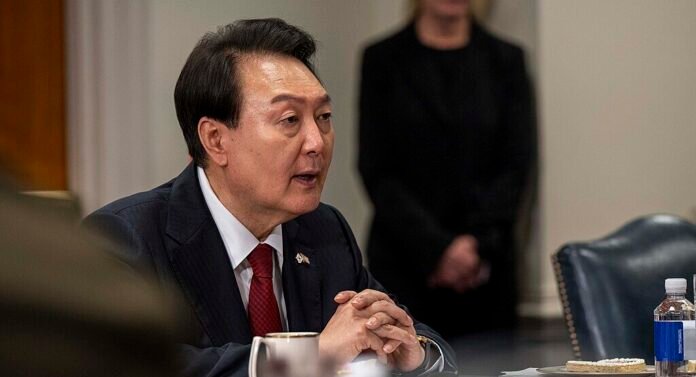The Political Turmoil in South Korea deepens as President Yoon Suk Yeol faces charges related to the alleged orchestration of an insurrection, exposing the fragile stability of the nation’s political landscape, often marred by high-profile corruption scandals and public outrage over political misconduct.
This particular event underlines ongoing tensions within South Korea’s political framework, as efforts continue towards addressing corruption and upholding democratic integrity. The arrest warrant amplifies a critical narrative of accountability that resonates with the broader public, tired of historical precedence where leaders were perceived to operate with impunity.
This political saga doesn’t merely end with internal repercussions. The intertwined nature of South Korea’s geopolitical relations, particularly with North Korea’s consistent provocations and the strategic importance of South Korea to U.S. interests in Asia, means that domestic stability is of international concern.
The anti-corruption agency’s assertive stance reflects its pivotal role in a democratizing agenda, with aspirations to instil public confidence in governance systems. As legal proceedings unfold, this period presents both challenges and opportunities for reforms that might strengthen democratic practices amidst public scrutiny.
Embed from Getty ImagesPerspectives
Perspective 1: Supporters of President Yoon might argue that the legal actions against him are politically motivated and stem from opposition groups seeking to consolidate power. They may contend that his policies were otherwise effective, and such allegations serve to destabilize the political landscape unfairly, undermining democratic processes.
Sources:
Reuters
Perspective 2: Conversely, critics of Yoon and proponents of the anti-corruption movement could view these developments as crucial for reinforcing the rule of law and ensuring accountability for actions taken while in office. For these stakeholders, addressing corruption is seen as integral to rebuilding trust and enhancing the legitimacy of South Korea’s democratic institutions.
Sources:
Reuters
Perspective 3: The Political Turmoil in South Korea has sparked international concerns over regional stability, with geopolitical tensions surrounding North Korea. Nations invested in preserving balance are advocating for diplomatic efforts and systemic reforms to maintain continuity and predictability in South Korea’s political and economic landscape.
Sources:
Reuters
